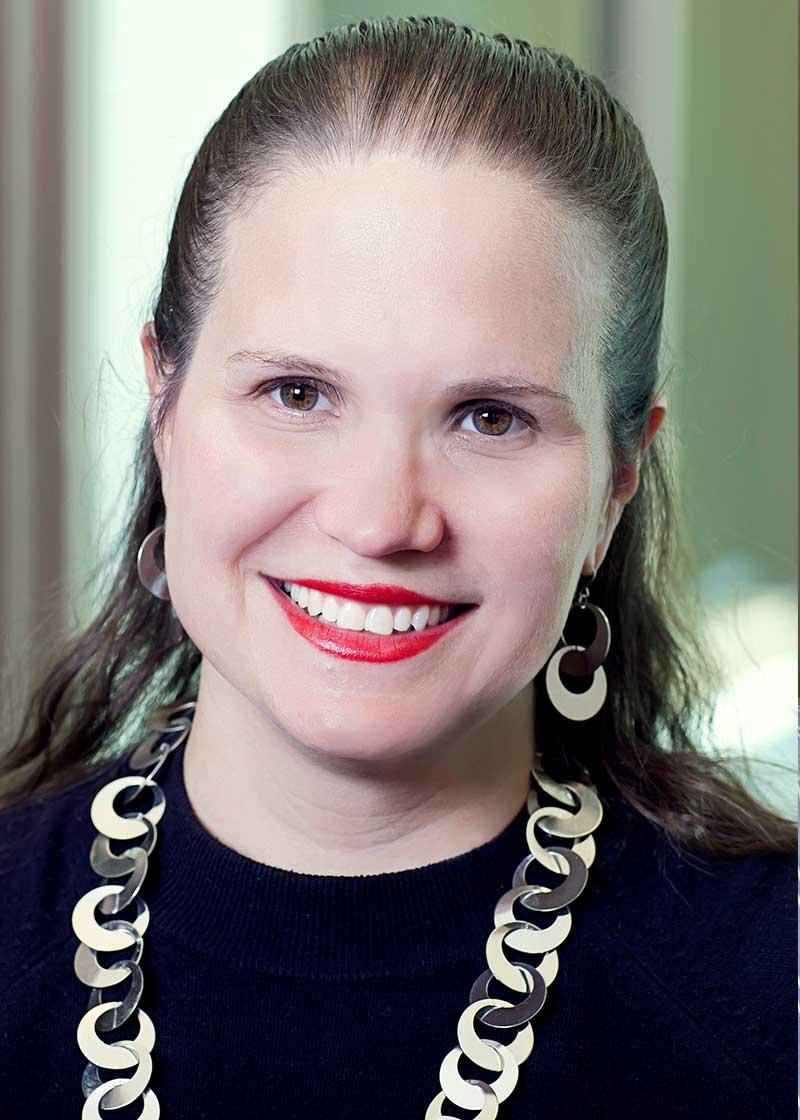 Kathy Livingston, BSOT, CLVTLast fall, UAB’s Low Vision Rehabilitation Graduate Certificate Program (LVRGCP) introduced a pioneering course in blindness rehabilitation. Instructor Jenice Heck, LOTR, MMC, an occupational therapist who has been blind since birth, offers students a unique blend of clinical education and personal insight into the lives of people who live without vision.
Kathy Livingston, BSOT, CLVTLast fall, UAB’s Low Vision Rehabilitation Graduate Certificate Program (LVRGCP) introduced a pioneering course in blindness rehabilitation. Instructor Jenice Heck, LOTR, MMC, an occupational therapist who has been blind since birth, offers students a unique blend of clinical education and personal insight into the lives of people who live without vision.
Kathy Livingston, BSOT, CLVT, is an experienced occupational therapist who recently transitioned her practice from acute care to low vision rehabilitation. She received low vision training when she joined the Cincinnati Association for the Blind & Visually Impaired in Ohio but lacked knowledge about blindness techniques and resources.
Livingston, who is enrolled in the LVRGCP, was excited to have the option to add this course to her curriculum.
“It filled in the blanks for me, and bridged an important gap in my low vision training,” she says. “It equipped me with practical tools and resources I can use to help my clients who are blind do what they need and want to do in their daily lives.”
From the Practical to the Personal
A key piece of the blindness course is instruction in teaching clients who are blind to use assistive devices and organizational techniques, such as strategies to identify recipe ingredients and integrate cooking tools so they can enjoy preparing meals while staying safe in the kitchen.
 Jenice Heck, LOTR, MMCThe course’s hands-on practical training also includes the use of devices and technology for other daily tasks, such as dressing and applying makeup, as well as techniques that allow clients to protect their bodies as they move through space. Students learn to assess clients with progressive vision loss to determine the right time for referral to orientation and mobility experts.
Jenice Heck, LOTR, MMCThe course’s hands-on practical training also includes the use of devices and technology for other daily tasks, such as dressing and applying makeup, as well as techniques that allow clients to protect their bodies as they move through space. Students learn to assess clients with progressive vision loss to determine the right time for referral to orientation and mobility experts.
Heck also delves into the philosophy of blindness rehabilitation and its emphasis on teaching. Livingston says it was especially helpful to learn from someone who is blind.
“Jenice uses the techniques she teaches us every day,” she says. “She also gives us opportunities to talk to her about being blind and blindness sensitivity.”
Livingston notes that all occupational therapy practice areas include clients with visual disorders, and this course gives therapists the skills and knowledge to work confidently with those who are blind.
“Occupational therapists in general are very holistic practitioners, but I feel like we are missing that blindness piece because we’re so used to working with people with some sight,” she says. “This course changes your view of the world and gives you tools in your tool belt to help those with blindness.”
Take the Course
If you’re an occupational therapist, you can take the blindness course without enrolling in the LVRGCP. To start the process, apply to the UAB Graduate School as a non-degree seeking student.
Visit the LVRGCP website to learn more about this course or the certificate program. If you have questions, email or call Program Director Beth Barstow, PhD, OTR/L, SCLV, FAOTA, at